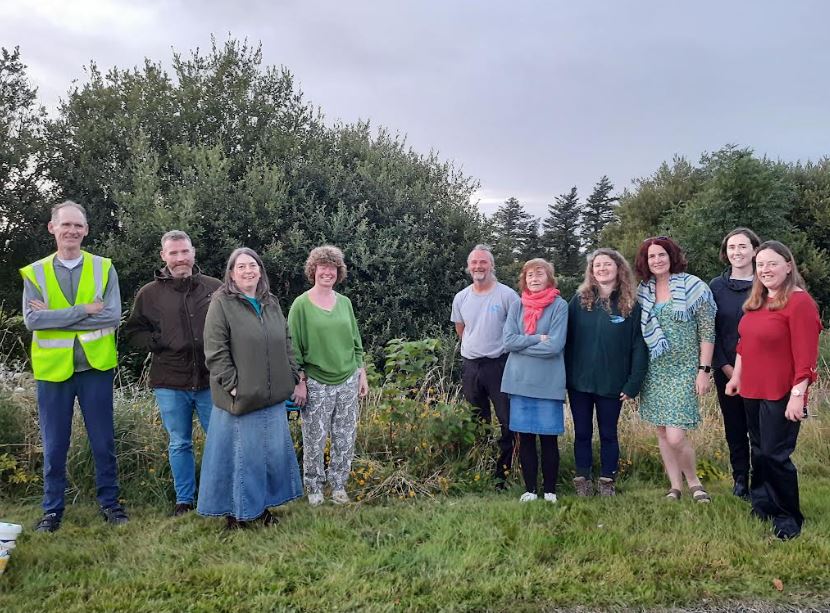
What’s been described as a new eco-friendly treatment to help eliminate Japanese Knotweed has been developed in Donegal, and is being trialled in a special project in Inishowen.
KPM Soils, based in Carndonagh, have developed what they say is an environmentally safe solution through composting called Knotweed Novel Organic Treatment, or KNOT for short.
They introduced the product at a recent workshop in Inishowen, and applied the treatment to the Japanese Knotweed opposite the Inishowen Co-Op in Carndonagh.
They say it will take around six weeks for the effects of the treatment to be visible on the plant.
The Inishowen Rivers Trust is one of the groups which organised the workshop.
Its project officer is John Duffy………………..
Press Release in full –
A NEW eco-friendly treatment to help eliminate Japanese Knotweed will avoid the use of harsh
chemicals when dealing with invasive plants in Inishowen, an environmental group has said.
At a recent workshop of the Eco Carn Network and Inishowen Rivers Trust in Carndonagh, reps
introduced a new natural solution that is effective against eliminating and reducing the growth of
Japanese Knotweed.
Currently this invasive is being treated widely with chemical herbicides which does control the
growth of Japanese Knotweed however it also affects all the other plants and wildlife in the vicinity
of the spraying and eventually ends up in our drinking water.
As an alternative to chemicals, KPM Soils, based in Carndonagh, have developed an environmentally
safe solution through composting called KNOT [Knotweed Novel Organic Treatment]
Kevin Moore of KPM Soils carried out a demonstration at last week’s workshop in Carndonagh
outlining how the eco-friendly solution is made and discussed the outcomes of a small trial carried
out last year.
At the workshop on 10 th August, Kevin applied this treatment to the Japanese Knotweed opposite
the Inishowen Co-Op in Carn. It will take around six weeks for the effects of the treatment to be
visible on the plant.
At the workshop, Dr Trish Murphy, project officer with Inishowen Rivers Trust, highlighted the areas
around the peninsula where Japanese Knotweed is most prevalent. She also gave an overview to the
top three invasive species which are impacting Carndonagh and Inishowen as a whole.
Previously the ECO Carn Network, which is a collaborative network of community organisations,
supported by Inishowen Development Partnership and Inishowen Rivers Trust, held balsam bashing
events along the Donagh River in Carn.
Residents and visitors to Carndonagh should look out for ECO Carn signage which will be installed
around the Carndonagh area in the next few weeks – raising awareness on the issues around
invasives and what the community can do to help.
If you are interested in finding out more, please contact rachel@inishowen.ie, ECO Carn
https://www.facebook.com/EcoCarndonagh/ or for information on the KNOT treatment for
Japanese Knotweed, please contact KPM Soils at kpmsoils@gmail.com or through their social media
pages.
KNOT is funded by the Department of Public Expenditure and Reform through their Public Services Innovation Fund as well as Donegal County Council, Local Authority Water Programme with support from Office of Public Works.
Follow DPER’s Our Public Service on Twitter & LinkedIn – @OPS_Ireland/ Our Public Service
#MakingInnovationRealIRL





